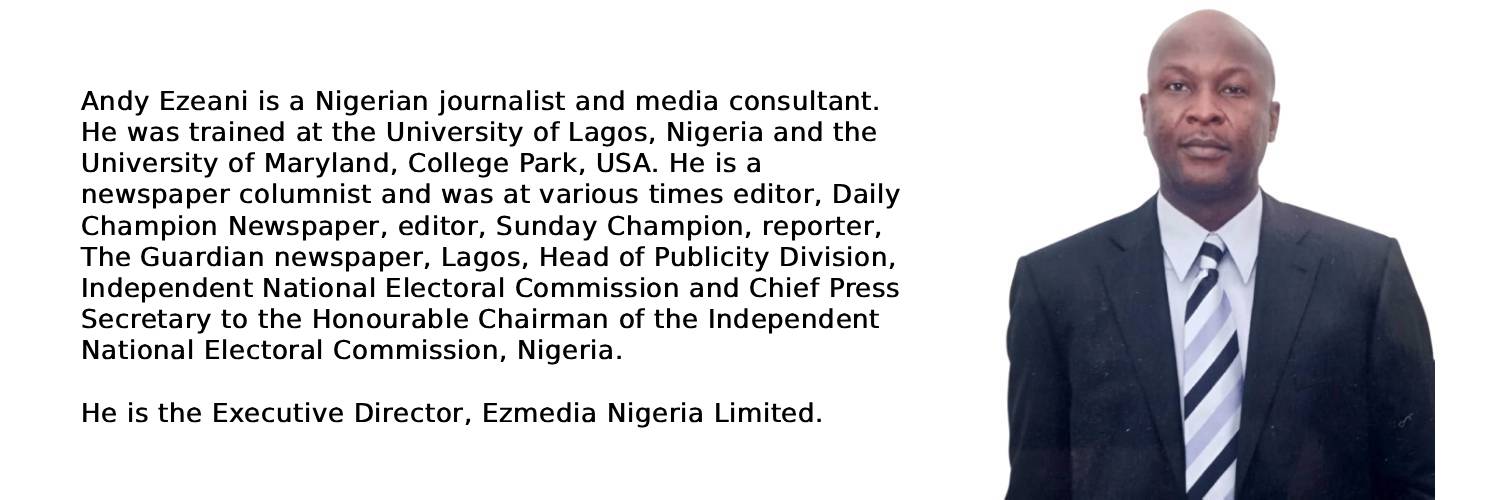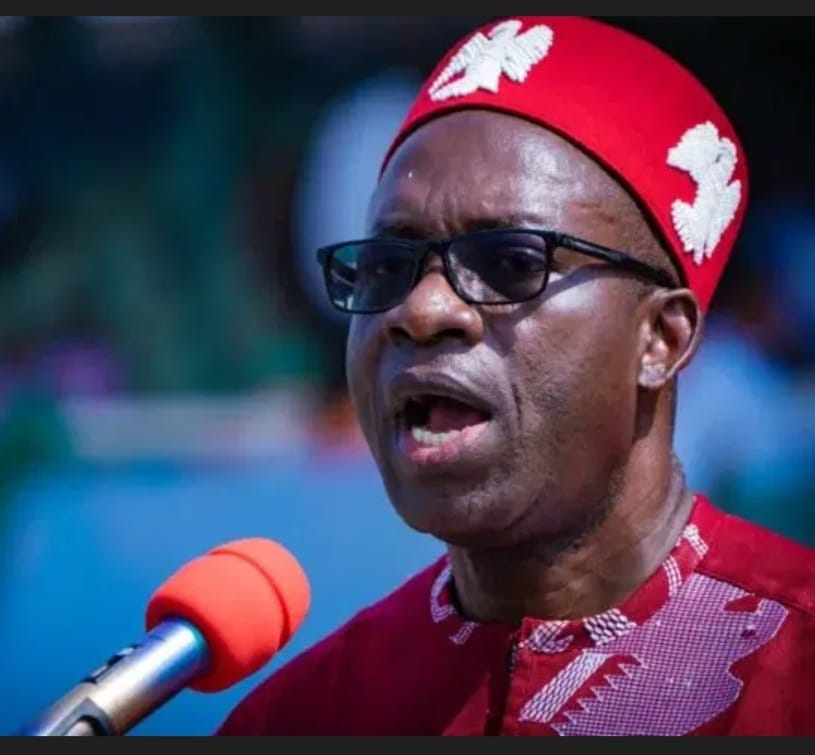The result of the Anambra state governorship election of Saturday, November 8 2025 has since come in. Incumbent Governor Chukwuma Soludo retained his seat in Awka. That was expected.
For Soludo and his supporters, as is always the case with politicians, all that mattered was the result. The finer details about the exercise are of secondary importance.
Reports and images of unrestrained transactions featuring party agents distributing money to prospective voters, with reminders of the party to vote for, in this case, the governor’s All Progressives Grand Alliance (APGA), are virtually nonissues to everyone. The governor won the election. That simply is it.
Soludo actually raised the money game a notch higher during the campaigns. He was upfront with the Anambra voting communities. He promised attractive sums of money to communities that robustly returned him.
The communities heard him clearly and responded appropriately. Having kept their side of the bargain, it is up to the returnee governor now to be a gentleman and do his part.
As the outcome of the election shows, no community wanted to miss out on the promised prize money or to face any undeclared reprisal. No local government area wanted to be left behind.
Consequently, all the 21 LGAs hugged the APGA candidate. Even at that, respective voters still needed to be “encouraged” by party agents on their way to voting, irrespective of the promise of a prize money for high performing communities. It bears acknowledging that it was not only Governor Soludo and his party that offered financial inducement to voters on the road to the election on Saturday, November 8 2025.
It may actually not be fair to Soludo to read his victory at the polls as deriving, essentially, from sundry shenanigans and financial inducement to the voting communities. His resort to open financial inducement was particularly disappointing because the election was his to lose.
For one, he was the incumbent. That status conferred various advantages to him, among which were visibility and name recognition, as well as several prior contacts with the communities in the state. APGA has also been the ruling party in Anambra state for the last one and a half decades. It was difficult, therefore, to understand the basis for the desperation and panic that pushed the governor to unrestrained money politics.
Soludo had the added advantage of standing taller and on firmer footing than virtually all his competitors. Although substance does not always guarantee success in politics, the stature and capacity of the majority of the contenders in the Anambra State governorship election posed no serious threat to the governor. He could not have asked for a better lineup of challengers.
Disappointingly, in spite of these manifest advantages, the high point of the governor’s campaign turned out to be an appalling brickbat with a junior partner in an opposing ticket, over personal hygiene and alleged dalliances
The texture of the 2025 Anambra governorship election campaign reflected the character of political campaigns in the country. Not much substance comes out from political campaigns these days. The high point of most of the campaigns are either dancing and clowning or abuse of opponents, accompanied by inane promises with no values beyond generating noise at the campaign ground.
It was to Soludo’s good fortune, really, that an overwhelming majority of the candidates who squared up with him at the campaigns lacked both name recognition and track record to run on. It was that serious. One of them reportedly threatened somewhere during the campaign that he would teach Soludo a lesson. He may yet do it. You never know.
Beyond the entertainment at the campaign, the statistics from the 2025 Anambra State governorship election raise concern about the lack of progress in the deepening of participatory democracy in the Nigerian environment.
For all the noise and the hype about elections; for all the humongous state resources deployed in these exercises through very elaborate processes, the people remain substantially uninvolved.
In the preparation for the 2025 Anambra election, a total of 2,802,790 voters were registered by the independent National Electoral Commission. That is a very healthy figure that indicated people’s interest in participating in the electoral process.
This encouraging signal from the citizens was followed by an equally impressive and uplifting fact of 2.7 million of the registered voters collecting their Permanent Voter’s Card (PVC). At that point, it had seemed that a teaming number of voters were determined to have their say in electing the governor of the state on November 8 2025.
On November 16 2021, during the last governorship election that brought in Soludo as governor, barely 10.3 percent of voters turned out. Four years earlier, for the second term of Willie Obiano, 16.3 percent of voters turned out.
The excitement was quite high for the 2025 election, that with the improved number of registered voters and the high number of voters who collected their PVCs, democracy will receive a warmer embrace this time around.
Lo and behold, at the election on Saturday, November 8,2025, of the 2.7 million people that had their PVC, only 536,485 turned out to vote. That was less than 20 percent voter turnout. Depressingly, too, of this figure of particular concern, a dreadful total of 11,244 votes were voided. That is to say, the voters could not vote properly. Their voting was, therefore, as good as their not voting at all.
Elections in Nigeria, including the 2023 general elections, have consistently followed the same path of returning minority mandates. This should be of concern to all.
On the positive side, the logistics control end of the 2025 Anambra governorship election was not found wanting, according to reports. In other words, the Independent National Electoral Commission did its job creditably. There was no reported security issue, either.
So, then, what are the problems that militate against healthy voter turnout for elections in the country, in this case, in Anambra State?
The spectre of politicians and agents of political candidates openly inducing voters, ordinary citizens, with pittance during elections and the pitiable fellows enthusiastically collecting what was given to them and proceeding to dutifully mortgage their future speak of the sinful level of poverty and ignorance in the Nigeria society. In Anambra, the criminal bazaar was in full swing. After that, what? misery.Clearly,ordinary people are yet to perceive election as an important civic duty.
On being declared the winner of the governorship election, Soludo promptly expressed his appreciation to President Bola Tinubu. He had to. He had courted Tinubu vigourously and succeeded in getting him to turn away from his own party.
INEC’s new chairman, Professor Joash Amupitan, also benefitted from the scenario. He was not put under pressure to turn left midway while going right.
Now that Soludo has won a second term and profusely thanked Tinubu for whatever, the next step in the sequence is being expected. In the parlance of political deserters in recent times, he, too, may have need to take his people to the centre. It is his call now.His 19 percent mandate is a mandate.
Blurb
For all the hullabaloo about elections in Nigeria in recent times; for all the humongous state resources deployed in these exercises through elaborate processes, the people remain substantially uninterested.
Elections in Nigeria, including the 2023 general elections, have consistently recorded low voter turnout. Barely 500,000 voters out of 2.8 million registered voters just elected the governor of Anambra State.This should be of concern to all.


